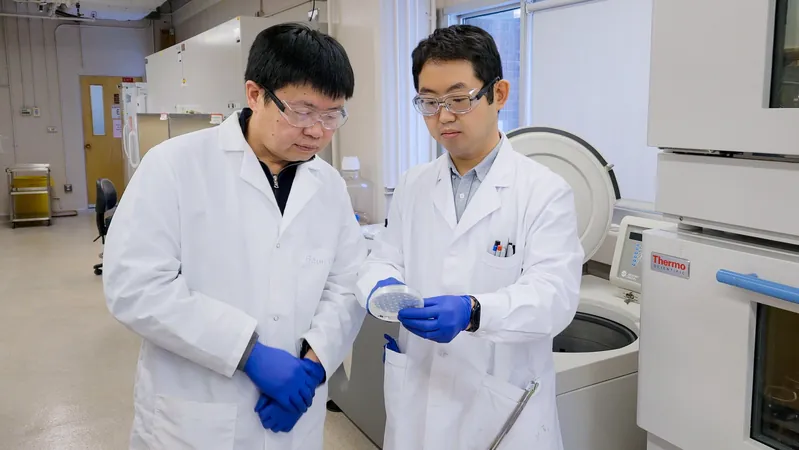
Breakthrough in Fermentation: Yeast Engineered to Generate Abundant Health-Boosting Fatty Acids!
2025-01-21
Author: Jacob
Introduction
In an exciting advancement from the University of Alberta, researchers have harnessed the power of genetic engineering to significantly increase the production of punicic acid—a highly beneficial fatty acid primarily derived from pomegranates. This revolutionary study, recently published in the prestigious Journal of Agricultural and Food Chemistry, could disrupt traditional farming practices by offering a sustainable and cost-effective production method.
Engineering Yeast for Fatty Acid Production
Using a specially developed strain of baker's yeast, which initially had no punicic acid content, the team successfully increased levels of this health-promoting lipid that boasts cholesterol-lowering, anti-inflammatory, and cancer-preventive properties. "This means we could produce this high-value lipid much more quickly and economically in the future, without needing to use arable land," says Guanqun (Gavin) Chen, the study’s co-author. This advancement not only paves the way for a sustainable source of specialty oil but also provides an additional biomass protein that can serve as a supplement in food and animal feeds.
Limitations of Traditional Sources
Traditional sources of punicic acid, such as pomegranate seeds, often face supply limitations due to their low seed-to-fruit ratio and oil yield. However, the innovative use of CRISPR-based gene shuffling has allowed the researchers to integrate specific genes related to punicic acid synthesis directly into the yeast's DNA. This method is revolutionary as it enables the combination of multiple gene experiences simultaneously, vastly improving the efficiency of the screening process for beneficial genetic variations.
Impressive Results Achieved
The results of their experiments are staggering: the punicic acid content in their new yeast strain increased an astonishing 80-fold, reaching a remarkable 26.7%. This achievement represents the highest level of punicic acid production recorded thus far in engineered microorganisms or plants, signaling significant potential for commercial-scale output.
Reliability and Stability of Production
Importantly, the stability of punicic acid levels in the yeast strain suggests that this engineered solution can be used reliably across multiple fermentation batches. Chen elaborates, "For bioindustrial production, it means that the genes added into the yeast don’t get lost from one batch of fermentation to the next." This stability is crucial for scaling up production processes and ensuring consistency in the final product.
Looking Forward
With a provisional patent already filed for their groundbreaking findings, the research team is looking forward to the next phase, which involves testing their high-yield yeast strains in lab-scale fermentors. This step marks a critical move towards commercialization while ensuring that the health benefits of punicic acid can be more widely available and utilized.
Conclusion
As interest in sustainable and health-focused food production continues to rise, this breakthrough could potentially transform how we view and produce functional fatty acids, making it easier and more feasible to include such vital nutrients in our diets. The future of food science is bright, and researchers are just getting started!









 Brasil (PT)
Brasil (PT)
 Canada (EN)
Canada (EN)
 Chile (ES)
Chile (ES)
 Česko (CS)
Česko (CS)
 대한민국 (KO)
대한민국 (KO)
 España (ES)
España (ES)
 France (FR)
France (FR)
 Hong Kong (EN)
Hong Kong (EN)
 Italia (IT)
Italia (IT)
 日本 (JA)
日本 (JA)
 Magyarország (HU)
Magyarország (HU)
 Norge (NO)
Norge (NO)
 Polska (PL)
Polska (PL)
 Schweiz (DE)
Schweiz (DE)
 Singapore (EN)
Singapore (EN)
 Sverige (SV)
Sverige (SV)
 Suomi (FI)
Suomi (FI)
 Türkiye (TR)
Türkiye (TR)
 الإمارات العربية المتحدة (AR)
الإمارات العربية المتحدة (AR)